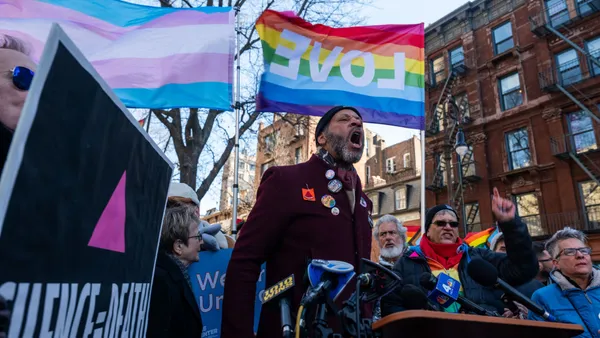Dive Brief:
- Women now make up the majority of the college-educated U.S. labor force — reaching a milestone in the first quarter of 2019 that slightly surpasses the number of college-educated male workers — new analysis from the Pew Research Center shows. Pew analyzed U.S. Bureau of Labor Statistics data and found that the number of women in the workforce with at least a bachelor's degree is 29.5 million (50.2%), compared with 29.3 million working men with at least a bachelor's degree.
- Pew noted that U.S. women have been earning the majority of college degrees since the early 1980s. Today they earn 57% of bachelor's degrees. The center attributed college-educated women's lack of parity with men for the past 10 years — despite earning the majority of bachelor degrees — to their lower numbers in the labor force. According to the center, 78.1% of college-educated men and 69.9% of college-educated women were in the labor force in 2018.
- In other Pew analysis, college-educated women still lag behind men in certain occupations, such as engineering (15%) and computer occupations (25%). College-educated women still are the majority of healthcare practitioners and technicians, and office and administrative support staff, Pew found.
Dive Insight:
Women's lower participation in the labor force has been cited as one reason for gender-based pay disparities. The assumption is that women frequently, and for long periods, leave the labor force to start families as primary caretakers. This can have long-term impacts on women's earning potential, according to previous analysis from Pew. The research body noted in its recent report that there are "important economic implications" for workers in college-educated women achieving equal representation in the workforce.
"The growing number of college-educated women in the labor force translates into greater earning potential for women overall and could eventually contribute to the narrowing of the gender wage gap," wrote senior researcher Richard Fry in a post on Pew's site about the study.
While the number of college-educated women in the workforce gained parity with men, the gender pay gap persists and will take a long time to address. Achieving gender pay equity across the globe will take 108 years, according to the Global Gender Gap Index published by the World Economic Forum.














